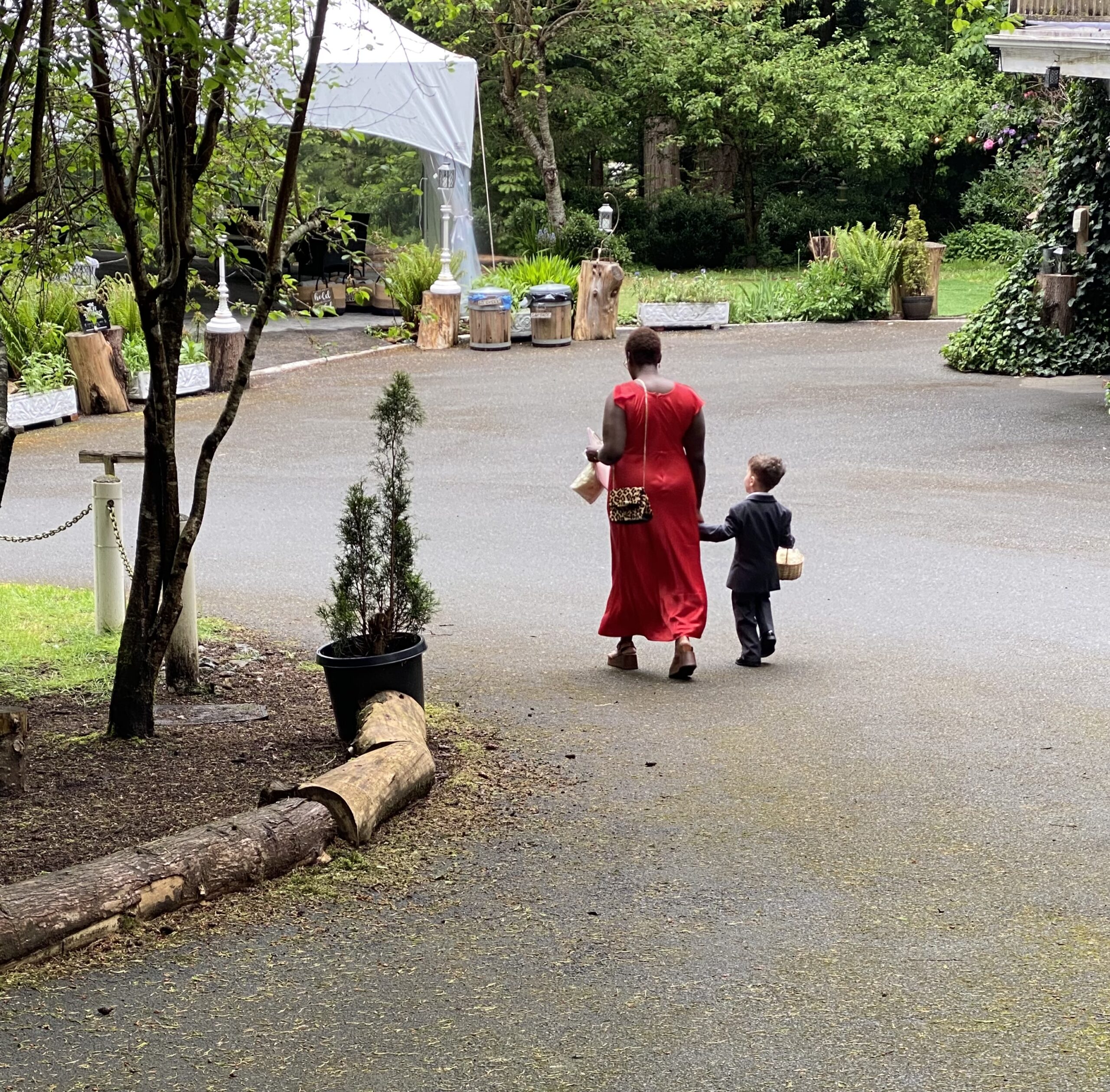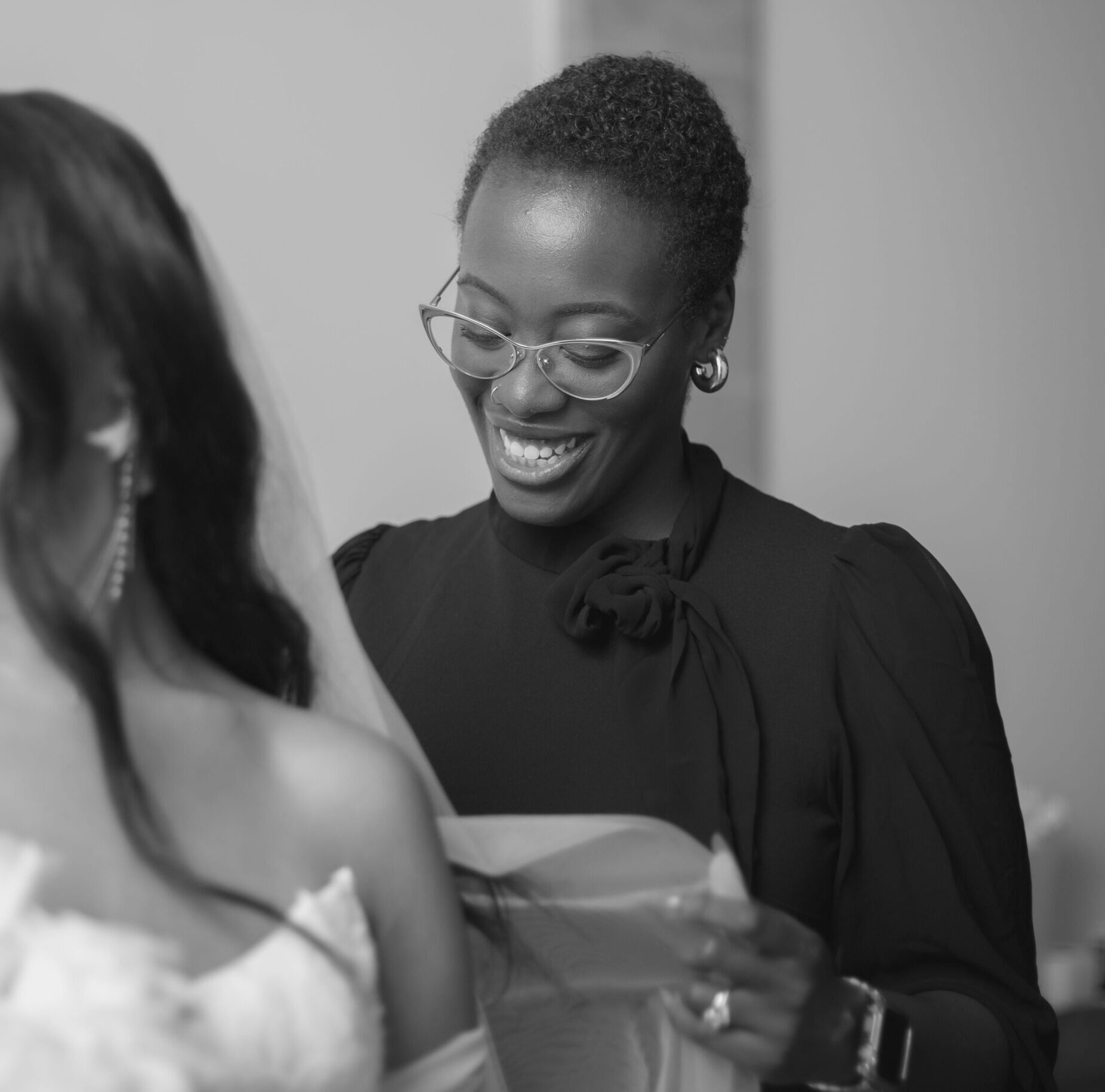
Kid-Free Weddings: Setting Boundaries with Style
One of the most personal (and often controversial) decisions couples make during wedding planning is whether or not to invite children. A kid-free wedding (also known as an adults-only wedding) can spark strong feelings from guests, especially family members or friends with young children. But here’s the truth: it’s your wedding, and you’re allowed to set boundaries that help make your day feel joyful, intentional, and stress-free.
In this Love, Linda entry, we’re talking all things kid-free weddings: why couples choose them, how to communicate this boundary clearly and kindly, what to do when exceptions come up, and how to handle pushback without losing your peace.
Why Couples Choose Kid-Free Weddings
Let’s start by busting a myth: choosing a kid-free wedding doesn’t mean you hate children. In fact, many of my couples love the little ones in their lives, but still choose to celebrate without them present.
Here are a few common reasons why couples opt for adults-only celebrations:
- Budget Constraints: Each extra guest adds to the overall cost, and including children can mean needing more seats, meals, favors, entertainment, or even childcare.
- Venue or Timing Restrictions: Some venues (especially in the evening or those serving alcohol) are not set up to accommodate children. Others may have age restrictions for safety reasons.
- Creating a Specific Atmosphere: Many couples want to create a more formal or relaxed vibe where guests can fully enjoy the evening, dancing, dining, and maybe indulging in a few cocktails, without needing to supervise their kids.
- Stress Reduction: Weddings are full of moving parts. Without kids running around (or melting down), it’s often easier for everyone (including the parents) to be fully present and enjoy the moment.
There’s no one-size-fits-all reason, and you don’t need to justify your choice to everyone. But it does help to communicate the boundary with kindness and clarity.
How to Announce a Kid-Free Wedding
Once you’ve made your decision, clear communication is key. Here’s how to make sure guests know your celebration is adults-only, without sounding harsh or awkward.
1. Say it on your wedding website
Your wedding website is the perfect place to explain your wishes in a gentle but direct way. Here are a few wording options:
- “While we love your little ones, our wedding will be an adults-only celebration. We hope this night off lets you enjoy the evening to the fullest!”
- “To allow all guests to relax and enjoy the evening, we respectfully request no children at the ceremony or reception.”
- “We kindly request that our wedding be an adults-only occasion. Thank you for understanding!”
You can also include helpful info, like local babysitting services or hotel childcare options if available.
2. Be explicit on the invitation (with tact)
It’s not enough to just address the invitation to the adults of the household. Some guests will still assume their children are invited unless you spell it out clearly.
Instead of writing “No kids,” opt for language like:
- On the RSVP card: “___ seats have been reserved in your honor” (then only include the number of adults invited).
- Or include a line like: “We kindly request an adults-only celebration.”
You can also use your envelope addressing to reinforce the boundary (e.g., “Mr. and Mrs. Taylor” vs. “The Taylor Family”).
Reinforcing the Boundary
Even with the best communication, some guests may forget, misunderstand, or push back. Here’s how to reinforce your boundary gracefully.
1. Share the responsibility
If you’re working with a wedding planner (hi, that’s me!), we can help field the awkward conversations. But even without a planner, enlist a trusted family member or friend to help gently redirect questions.
For example, if a guest RSVPs with kids listed, your designated helper can follow up with:
“We’re so excited you’ll be joining us! Just a quick reminder, the wedding is adults-only. Let us know if you need help finding a sitter.”
2. Stick to the script
If someone challenges your decision, it’s okay to repeat your message calmly and consistently.
Try something like:
“We totally understand that finding childcare can be tricky. We’re keeping the wedding adults-only so all guests can relax and enjoy the evening. We really hope you can still come!”
Avoid over-explaining or negotiating. The more you waver, the more people assume the rule is flexible.
What About Exceptions?
Even the most firmly kid-free weddings sometimes make room for special exceptions. The key is to be intentional, not reactive.
Here are some examples of when exceptions might make sense:
1. Infants who are still nursing
It may feel more compassionate to allow parents of very young babies to bring them, especially if they’re still breastfeeding and can’t be away for long.
You can specify something like:
“While our wedding is adults-only, we completely understand if nursing infants need to be with their parent during the event.”
2. Children in the wedding party
If your niece is your flower girl or your best friend’s son is the ring bearer, it’s totally okay to include them in the ceremony and then make plans for them to leave afterward.
Let their parents know in advance:
“We’d love for Mia to be part of the ceremony! We’ll arrange for her to leave with a sitter after photos so you can enjoy the evening.”
3. Children with disabilities or unique needs
This is a nuanced and deeply personal area. If a child is on the spectrum, lives with sensory sensitivities, or has other special needs, their attendance might be essential for their family’s participation. In these cases, a blanket policy might not feel fair or inclusive and it’s okay to make a thoughtful exception.
You could consider wording like:
“Our wedding will be an adults-only celebration, but we understand that every family’s needs are unique. If you have specific circumstances you’d like to discuss, we’re happy to chat and make a plan together.”
This approach shows that you’re holding space for compassion, without opening the floodgates for everyone to bring their kids.
4. Destination weddings or travel logistics
If you’re asking guests to travel long distances and leave their kids behind, some flexibility may be necessary. In these cases, consider offering group childcare at the hotel or venue.
What If Guests Are Upset?
No matter how clearly you communicate, some people may still be disappointed. That’s okay, it doesn’t mean you’re doing something wrong.
What matters is that you’ve made a thoughtful decision as a couple, and you’re not excluding children out of malice, but to create the best experience possible for your wedding.
Here’s how to handle emotional responses:
- Listen, but don’t bend: Acknowledge their feelings without changing your plans. “We totally understand. It’s a tough decision, but we’re sticking with adults-only. We really hope you can still come!”
- Offer solutions: If possible, help them brainstorm childcare options or suggest bringing a trusted family member along to babysit.
- Be okay with their choice: Some parents may decide not to attend. It’s hard, but it’s not a reflection of your wedding or your relationship. Respect their boundaries as you hope they’ll respect yours.
Final Thoughts: Your Day, Your Way
At the end of the day, your wedding is a celebration of you. And like every other part of the planning process, from your colours to your menu to your guest list, your values and comfort should come first.
A kid-free wedding is not about excluding people, but about creating a space that feels right for the occasion, your vision, and your community. And when you communicate it with care and clarity, most people will understand, even if they’re initially surprised.
So take a deep breath, trust your gut, and know that you’re allowed to set boundaries, even joyful ones.
If you ever need help navigating sticky conversations, crafting the right wording, or finding gentle ways to reinforce your plans, I’m here for you.

Need Help Navigating the Planning Process? Let’s Talk.
At Fêtes by Linda, we specialize in full wedding planning and wedding coordination services that make your celebration feel effortless, fabulous, and entirely you.

Hi, I’m Linda: wedding and event planner, detail lover, and the heart behind Fêtes by Linda in Victoria, BC. Through my Love, Linda blog, I share stories, planning tips, and inspiration for couples who want their day to be inclusive, modern, and deeply meaningful. Whether you’re planning a grand fête or an intimate elopement, I’m here to help you create a celebration that truly feels like you.
Leave a Reply Cancel reply
All Rights Reserved – © 2026 Fêtes by Linda | created with showit
hello@fetesbylinda.ca
As a trusted Victoria wedding planner, Fêtes by Linda designs intentional, inclusive weddings and community celebrations in Victoria and beyond!
Be the first to comment